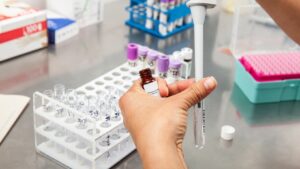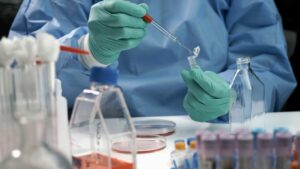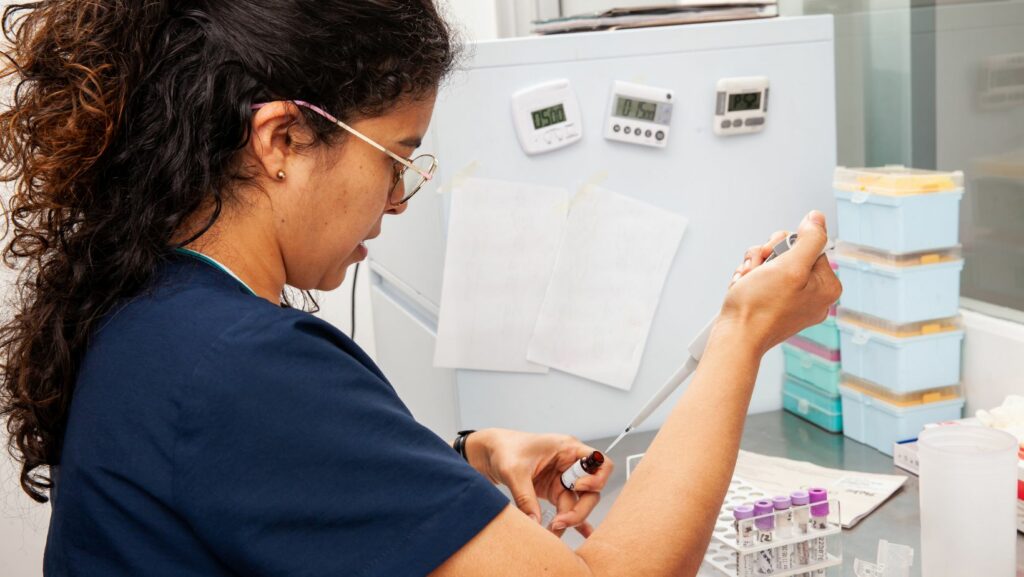 In the ever-evolving field of biotechnology, antibody production stands as a cornerstone of medical diagnostics and therapeutic applications. Over the years, scientists have developed various techniques to produce antibodies with precision and efficiency, fueling advancements in disease treatment and research. As the demand for specific and high-quality antibodies grows, understanding these production methods becomes increasingly crucial. From traditional hybridoma technology to cutting-edge recombinant DNA techniques, each method offers unique advantages and challenges. These innovations not only enhance the specificity and yield of antibodies but also pave the way for personalized medicine. By exploring the intricacies of these techniques, researchers can better harness their potential to combat a wide array of diseases, from cancer to autoimmune disorders. As biotechnology continues to advance, the refinement and diversification of antibody production techniques promise to revolutionize healthcare. The ongoing exploration and optimization of these methods are vital for meeting the ever-growing demands of modern medicine.
In the ever-evolving field of biotechnology, antibody production stands as a cornerstone of medical diagnostics and therapeutic applications. Over the years, scientists have developed various techniques to produce antibodies with precision and efficiency, fueling advancements in disease treatment and research. As the demand for specific and high-quality antibodies grows, understanding these production methods becomes increasingly crucial. From traditional hybridoma technology to cutting-edge recombinant DNA techniques, each method offers unique advantages and challenges. These innovations not only enhance the specificity and yield of antibodies but also pave the way for personalized medicine. By exploring the intricacies of these techniques, researchers can better harness their potential to combat a wide array of diseases, from cancer to autoimmune disorders. As biotechnology continues to advance, the refinement and diversification of antibody production techniques promise to revolutionize healthcare. The ongoing exploration and optimization of these methods are vital for meeting the ever-growing demands of modern medicine.
Antibody Production Techniques
 Antibody production techniques involve various methods that cater to specific requirements in biotechnology. Traditional methods like hybridoma technology generate monoclonal antibodies by fusing myeloma cells with B-cells from an immunized animal, typically a mouse. This process produces stable cell lines that secrete antibodies, useful in diagnostic assays and therapeutic applications. Recombinant DNA technology offers an advanced approach by utilizing genetic engineering. Through this method, scientists clone and express antibody genes in host cells like bacteria or mammalian cell lines. This approach allows for precise control over antibody properties, including affinity and specificity, enhancing their application in personalized medicine. Phage display technology presents another innovative technique. It involves displaying antibody fragments on the surface of bacteriophages, enabling the selection of high-affinity binders from vast libraries. This method accelerates the development of specific antibodies for research and therapeutic purposes.
Antibody production techniques involve various methods that cater to specific requirements in biotechnology. Traditional methods like hybridoma technology generate monoclonal antibodies by fusing myeloma cells with B-cells from an immunized animal, typically a mouse. This process produces stable cell lines that secrete antibodies, useful in diagnostic assays and therapeutic applications. Recombinant DNA technology offers an advanced approach by utilizing genetic engineering. Through this method, scientists clone and express antibody genes in host cells like bacteria or mammalian cell lines. This approach allows for precise control over antibody properties, including affinity and specificity, enhancing their application in personalized medicine. Phage display technology presents another innovative technique. It involves displaying antibody fragments on the surface of bacteriophages, enabling the selection of high-affinity binders from vast libraries. This method accelerates the development of specific antibodies for research and therapeutic purposes.
Traditional Antibody Production Techniques
Traditional methods of antibody production lay the foundation for modern biotechnological advancements. Hybridoma technology and polyclonal antibody production are the most prevalent techniques.
Hybridoma Technology
Hybridoma technology, developed in the 1970s, revolutionized the production of monoclonal antibodies. It involves the fusion of myeloma cells with B-cells derived from immunized animals. This process creates hybrid cells or hybridomas that continuously produce a single type of antibody. These antibodies exhibit specificity towards a single epitope, making them valuable in diagnostics and therapeutics. The endurance of hybridomas in culture allows for scalable antibody production, though initial cell fusion and screening require meticulous execution.
Polyclonal Antibody Production
Polyclonal antibody production involves immunizing animals like rabbits or goats to generate a diverse range of antibodies against a particular antigen. The process elicits an immune response resulting in the production of antibodies targeting multiple epitopes on the antigen. Harvested via blood serum, polyclonal antibodies exhibit high sensitivity due to their ability to recognize various sites on the antigen. Though their heterogeneous nature may affect batch consistency, they’re extensively used in research, diagnostics, and for detecting allergens and toxins.
Recombinant Antibody Techniques
Recombinant antibody techniques revolutionize the field by enabling precise manipulation of antibody characteristics. These methods offer enhanced specificity and flexibility in therapeutic and diagnostic applications.
Phage Display
 Phage display technology plays a critical role in recombinant antibody production. It involves displaying antibody fragments, such as single-chain variable fragments (scFvs), on the surface of bacteriophages. Through iterative biopanning processes, researchers can identify and select antibodies with high affinity for target antigens. Phage display libraries greatly enhance the discovery of novel therapeutic antibodies by providing a vast diversity of antibody sequences. This approach offers advantages in generating human or humanized antibodies, minimizing immunogenicity in therapeutic applications.
Phage display technology plays a critical role in recombinant antibody production. It involves displaying antibody fragments, such as single-chain variable fragments (scFvs), on the surface of bacteriophages. Through iterative biopanning processes, researchers can identify and select antibodies with high affinity for target antigens. Phage display libraries greatly enhance the discovery of novel therapeutic antibodies by providing a vast diversity of antibody sequences. This approach offers advantages in generating human or humanized antibodies, minimizing immunogenicity in therapeutic applications.
Single B-Cell Technologies
Single B-cell technologies streamline the process of identifying and producing monoclonal antibodies. By isolating individual B-cells from immunized subjects, researchers can sequence the antibody genes directly and express them recombinantly. Techniques such as microfluidics and sequencing innovations accelerate the isolation and analysis of single B-cells. This method allows for the rapid generation of antibodies against complex antigens, making it highly useful in vaccine and therapeutic antibody development. Single B-cell technologies provide a more efficient and targeted approach to antibody discovery, reducing the reliance on traditional hybridoma methods.

